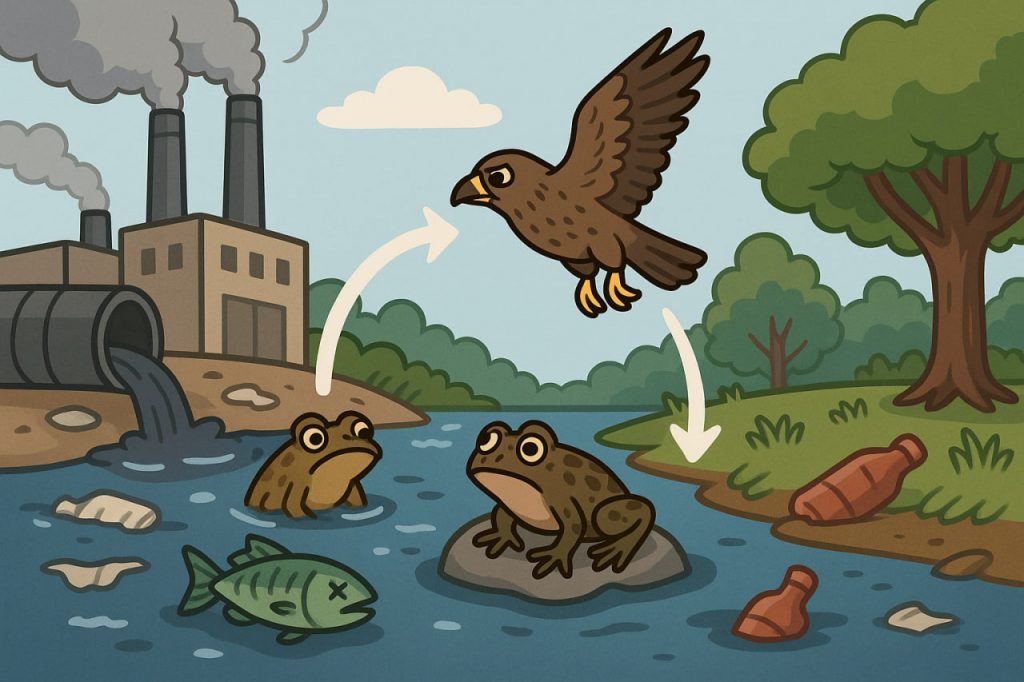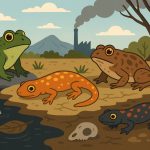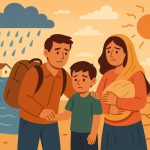A food chain is the natural sequence in which organisms obtain energy by consuming other organisms. It starts with producers (plants, algae), moves to primary consumers (herbivores), then to secondary and tertiary consumers (predators). Pollution disrupts this delicate balance by introducing harmful substances into the environment, which can accumulate and spread through each level of the chain.
Types of Pollution That Affect Food Chains
1. Chemical Pollution
- Includes pesticides, industrial chemicals, and heavy metals.
- These substances can enter soil and water, contaminating plants and small animals.
2. Plastic Pollution
- Microplastics are ingested by plankton, fish, and shellfish, and then pass up the chain to larger predators, including humans.
3. Oil Spills
- Coats marine organisms, destroys habitats, and poisons food sources for animals.
4. Radioactive Contamination
- From nuclear accidents, radioactive particles enter ecosystems, causing long-term genetic and reproductive harm.
Bioaccumulation and Biomagnification
- Bioaccumulation: Toxins build up in an organism’s body over time.
- Biomagnification: Concentrations of toxins increase at higher levels of the food chain because predators eat multiple contaminated prey.
- Example: Mercury in small fish can become dangerously concentrated in top predators like tuna and sharks.
Impact on Different Ecosystems
Aquatic Systems
- Pollutants from agriculture and industry flow into rivers and oceans.
- Disruption of plankton populations affects the base of the marine food chain.
Terrestrial Systems
- Soil contamination harms plants, which in turn affects herbivores and their predators.
Human Impact
- People consuming contaminated food may suffer from poisoning, developmental disorders, and chronic diseases.
Long-Term Consequences
- Loss of biodiversity as species decline or go extinct.
- Imbalance in predator-prey relationships.
- Collapse of entire ecosystems when key species are removed.
Preventing Pollution’s Effect on Food Chains
- Reducing pesticide and chemical use.
- Proper waste management to prevent plastics and toxins from entering nature.
- Strengthening environmental regulations and enforcement.
- Supporting cleanup projects and conservation efforts.
Glossary
- Producer: An organism (like a plant or algae) that creates its own food through photosynthesis.
- Bioaccumulation: The gradual buildup of toxins in an organism over time.
- Biomagnification: The increase of toxin concentration as it moves up the food chain.
- Ecosystem: A community of living organisms and their physical environment.


